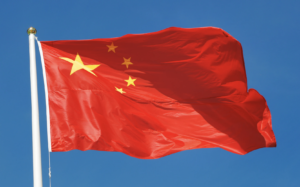 By Chelsea Chung, President at King’s Commercial Awareness Society
By Chelsea Chung, President at King’s Commercial Awareness Society
The Chinese Communist Party (CCP) started its 20th national congress last Sunday, as leader Xi JinPing delivered a much-anticipated speech to over 2000 members on a wide range of subjects, including its future covid-19 and economic policies for the next 5 years. What does this mean for the future of the CCP and how will this in itself affect the Chinese and international economy?
Background
- Change in the top leadership
The CCP’s national congress is held once every 5 years, with each of the meetings representing a historical internal rearrangement of China’s supreme political body. This is achieved through recruiting new blood for the central committee. More importantly, certain senior officials get promoted to the inner circle of the politburo and its pinnacle – the 7-person standing committee, where the real decision-making power lies.
- China’s economic challenges
China has been facing a significant economic slump as a result of its tough zero-Covid policies. According to CNN, at least 74 cities have been shut down since last August, affecting the lives of over 300 million citizens. The cities in lockdowns were estimated by Goldman Sachs to “account for 35% of China’s gross domestic product (GDP).” This has evidently worsened China’s economy, as seen in the collapse of its property market. Property prices have been falling and so have sales of new homes, with homebuyers threatening to stop paying off their housing mortgages. Furthermore, youth unemployment is reaching a new high, with 19.9% recorded in July hence a 10.3% increase since January 2018.
What Does This Mean?
- For the Chinese Communist Party
The CCP’s party convention states that top posts are only available for leaders aged 67 or below, meaning those above the age of 68 must retire in the next congress. However, President Xi is now 69 and is expected to remain in office for an unprecedented third term, rather unsurprisingly after his abolition of the two-term presidential limit in 2018. Xi has therefore cemented his leadership within the CCP, which gives him even greater influence over the appointments of the politburo and the standing committee. It is thus safe to say that Xi’s decision-making power will rise to a new level, shaping the party’s future direction in his favour.
- For China
Business leaders in China have been waiting for the zero-Covid policies to be eased. However, Xi has clearly prioritised stability in exchange for stopping the spread of the virus. According to Evans-Pritchard, a senior China economist at Capital Economics, Xi emphasised ‘self-sufficiency’ time after time, seemingly affirming the government’s adherence to the existing rigid Covid policies. In combination with weakening demands of China’s exports from the US and Europe, it is thus likely that the Chinese economy will continue to deteriorate for the near future. CNN expects China’s GDP to grow by merely 3% in the year of 2022, which, if true, would miss the government’s set target of 5.5% by a considerable margin.
- For the world
China’s worsening economy could open up a new phase in the US vs China competition. Washington recently issued the CHIPS Act to impose new restrictions on semiconductor shipments, which would in turn restrain China’s ability to purchase quality computing and AI chips. Furthermore, the act also restricts US tech workers from participating in the industry where relevant technologies are being developed in China. Biden’s administration’s competition-focused approach to undermine China’s technological development has thus undeniably intensified the already-dire relationship between the two worldwide superpowers, creating even more unpredictability for businesses that mass invested their capital in China over the past few decades riding onto the country’s pre-Covid ever-growing economic prosperity.